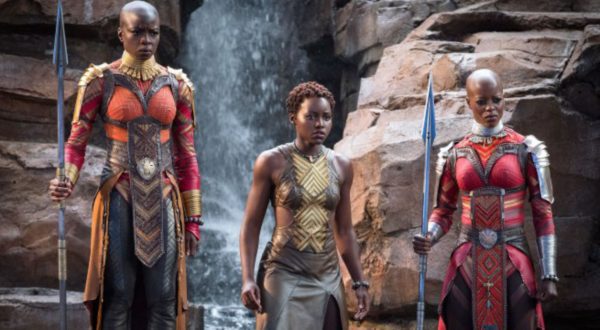The Dora Milaje Female Regiment depicted in 'Black Panther' is in a league of its own, inspiring respect and a revival recognizing the power of the Feminine in the broader cultural Consciousness. Referencing the Kingdom of Dahomey's (Now Benin) real-life 'Amazon' Female Regiment, a lost Chapter in African History has been rescued.
The euphoria is therefore understandable, well intentioned and understood. However, the display of bygone African Military prowess should not only delight but also cause us to ask the question how that Power was used in Pre-Colonial Africa.
In the case of Dahomey, the Military prowess was used to subjugate weaker Tribes who were then sold into Slavery by Empires such as Dahomey and the Assante. As Africans, it seems as if there is an attempt to ignore this aspect of the Trans-Atlantic Slave Trade because it does not accord with our modern sensibilities and mores.
Perhaps its time we confronted the question of our own complicity in the Slave Trade.
The extract below summarizes the key aspects quite neatly.
Motivations for Slavery
One question that many Westerners have about African slavers, is why were they willing to sell 'their own people'?
During the era of the trans-Atlantic slave trade, Europeans did not have the power to invade African states or kidnap African slaves at will. For the most part, the 12.5 million slaves transported across the Atlantic Ocean were purchased from African slave traders. It is a piece of the triangle trade about which there are still many critical misperceptions.
Why would they sell Africans to Europeans? The simple answer to this question is that they did not see slaves as 'their own people.' Blackness (as an identity or marker of difference) was a preoccupation of Europeans, not Africans. There was also in this era no sense of being 'African'. (Indeed, to this day, individuals are more likely to identify as being African rather than, say, Kenyan only after leaving Africa.)
Some slaves were prisoners of war, and many of these may have been seen as enemies or rivals to those who sold them. Others were people who had fallen into debt. They were different by virtue of their status (what we might think of today as their class). Slavers also kidnapped people, but again, there was no reason they would inherently see slaves as 'their own'.
Slavery as a Part of Life
It might be tempting to think that African slave traders did not know how bad European plantation slavery was, but there was a lot of movement across the Atlantic. Not all traders would have known about the horrors of the Middle Passage or what life awaited slaves, but others at least had an idea.
There are always people willing to ruthlessly exploit others in the quest for money and power, but the story of the African slave trade goes much further than a few bad people.
Slavery and the sale of slaves, though, were parts of life. The concept of not selling slaves to willing buyers would have seemed strange to many people up until the 1800s. The goal was not to protect slaves, but to ensure that oneself and one's kin were not reduced to slaves.
A Self-Replicating Cycle
As the slave trade intensified in the 16 and 1700s, it also became harder not to participate in the trade in some regions of West Africa. The enormous demand for African slaves led to the formation of a few states whose economy and politics were centered around slave raiding and trading. States and political factions that participated in the trade gained access to firearms and luxury goods, which could be used to secure political support. States and communities who were not actively participating in the slave trade were increasingly at a disadvantage. The Mossi Kingdom is an example of a state that resisted the slave trade until the 1800s, when it began trading in slaves as well.
When Slavery was eventually abolished, the damage had already been done.
Conclusion: Slave Trade History Revisionism
Black Panther's 'glorification' of the Dora Milaje is an understandable rare celebration of African culture in Mass Media. Ironically however, it also references a denied History in which Powerful African States with strong Armies like Dahomey were complicit in the Slave Trade.
Perhaps its time to revise our understanding of the Slave Trade, and particularly the true extent of African involvement and complicity.
 Links & Credits
Links & Credits
Dahomey Amazons: https://face2faceafrica.com/article/the-legendary-dahomey-amazons-are-the-real-life-all-womens-army-in-black-panther
Thompsell, Angela. "African Slave Traders: A History." ThoughtCo, Mar. 6, 2017, thoughtco.com/african-slave-traders-44538.
Hi! I am a robot. I just upvoted you! I found similar content that readers might be interested in:
https://www.thoughtco.com/african-slave-traders-44538
Downvoting a post can decrease pending rewards and make it less visible. Common reasons:
Submit